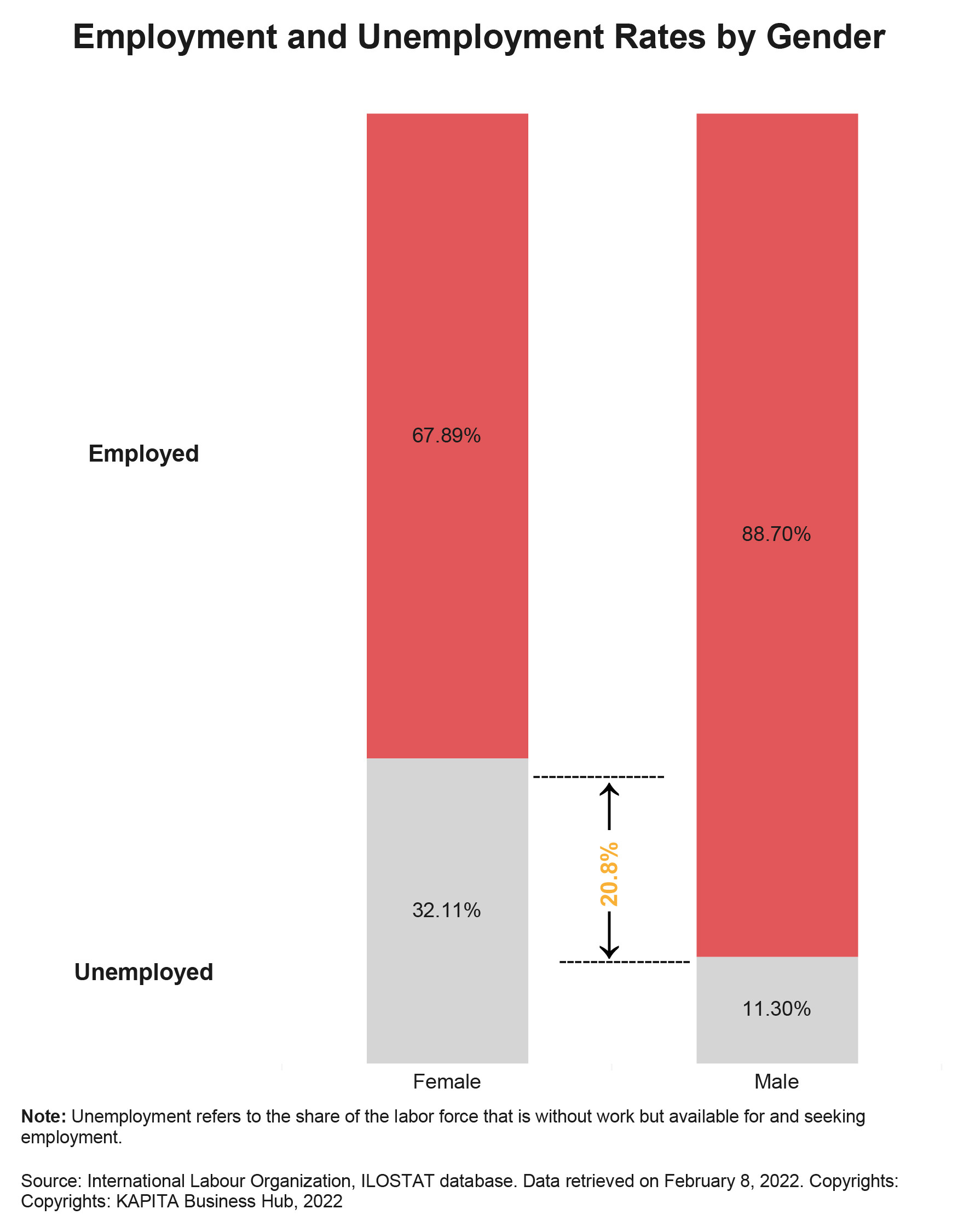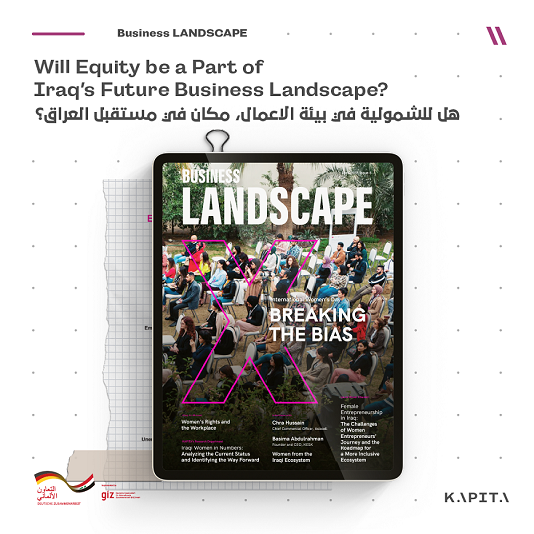An Equitable Iraqi Business Landscape
Safwa Salim
Executive Editor, Business LANDSCAPE
The ever-growing Iraqi business landscape comes with its own set of challenges and hurdles. The pioneers in this scene have made it their responsibility to navigate those challenges and pave the way for the development of this landscape. However, in the midst of this process, the fight for women’s equal access to opportunities rises while tackling more specific challenges.
In our population, Iraqi women contribute to around 50% of the population, while 65% of them are youth under 30 of age. Still, there is a lack of representation in the workforce, with 67.8% of the women labor force being employed compared to 88.7% of the men labor force. While women employers are only 0.2% of the workforce compared to 10 times that of their men counterparts which indicates the existence of numerous obstacles and glass ceilings. (Read more on page 24, Iraqi Women in Numbers: Analyzing the Current Status and Identifying the Way Forward
by KAPITA’s Research Department).

Those challenges are deeply rooted in many societal and cultural norms that steer women away from realizing their full potential in the Iraqi ecosystem. Women have been encouraged since childhood to take less risky paths and seek stability in order to attend to other chores at home. The unequal footing in the responsibilities between genders restrained women from pursuing ambitious goals in the private sector and the entrepreneurial scene. Those challenges are magnified when examining the unequal access to many educational and training opportunities. In addition to the underperforming legislative frameworks and policies that do not empower women to take the private sector path. (Read more on page 19, International Women’s Day: Breaking the Bias, Business Meetup Scope).
Women's participation in the formal workforce was limited until very recently when they started playing an integral role in the formal economy. This has positively impacted those societies where women were granted equal access to work. However, the inadequacy of the labor laws and regulations in recognizing women’s needs and rights have restrained the just participation of women in the workforce. Continuous attempts have been adopted by the International Labor Organization, and nations and governments to address those gaps in the labor laws. Iraq has been no exception, with its adoption of Law No.37 of 2015. (Read more on page 7, Women’s Rights and the Workplace by Alaq Al-Muwali).
Moreover, in the entrepreneurial scene, the gender disparities are more widespread, where the journey of women entrepreneurs takes on a more arduous form in all different phases, from forming the team, developing the sales to fundraising. In 2021, women founders in the MENA region had received only 1.2% of the amount of funding raised by startups. (Read more on page 10, Female Entrepreneurship in Iraq: The Challenges of Women Entrepreneurs’ Journey and the Roadmap for a More Inclusive Ecosystem by Laura Olivier Khudairi).
Nevertheless, women in the Iraqi ecosystem have been navigating their way through despite the challenging boundaries and delving into domains that are dominated by men, such as technology and science. The gender biases that embody the negative perception of women in those fields and the limited educational opportunities have made aspiring Iraqis create inclusive tech training spaces to equip women with the necessary skills to pursue careers in the tech domain. (Read more on page #, Iraqi Women in Tech: Bringing a Seat to the Table by Muklah Naji).
Enabling the women in the Iraqi ecosystem and supporting them to take on their righteous role in the development process of the Iraqi business landscape is the only way forward. This can be achieved by collective efforts in tackling gender gaps in education, work opportunities, laws and regulations, and the implementation entities.
